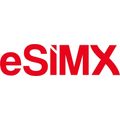Strong eSIM est une solution eSIM moderne conçue pour les voyageurs qui recherchent une connectivité rapide, fiable et simple. Nous proposons une livraison instantanée, des forfaits de données haut débit abordables et une assistance rapide 24h/24 et 7j/7 via WhatsApp, une fonctionnalité qui nous distingue. Avec Strong eSIM, rester connecté à l'étranger est un jeu d'enfant : scannez, connectez-vous et vous êtes en ligne en quelques secondes. Conçu pour la simplicité, la rapidité et l'assistance.

Strong eSIM est une solution eSIM moderne conçue pour les voyageurs qui recherchent une connectivité rapide, fiable et simple. Nous proposons une livraison instantanée, des forfaits de données haut débit abordables et une assistance rapide 24h/24 et 7j/7 via WhatsApp, une fonctionnalité qui nous distingue. Avec Strong eSIM, rester connecté à l'étranger est un jeu d'enfant : scannez, connectez-vous et vous êtes en ligne en quelques secondes. Conçu pour la simplicité, la rapidité et l'assistance.
Code Promo
Forfaits de données eSIM Strong eSIM pour la Suède
Questions fréquemment posées
Strong eSIM propose-t-elle une eSIM à données illimitées pour la Suède ?
Strong eSIM ne propose pas de eSIM à données illimitées pour Sweden. Tous les forfaits spécifiques à Sweden sont des forfaits à données fixes, dont le plus grand propose 50 GB pour 30 jours à 110, 90 USD ou 20 GB pour 30 jours à 31, 90 USD, chacun incluant le tethering, la connectivité 5G et valable 30 jours. Si un voyageur a besoin de plus de données, les forfaits à données fixes sont généralement plus rentables que l’option illimitée (si elle existait). Par exemple, un forfait de 50 GB valable 30 jours ou un forfait de 20 GB valable 30 jours peut convenir à la plupart des utilisateurs moyens, tandis que les utilisateurs très intensifs de données pourraient envisager de choisir un forfait à validité plus longue ou de vérifier les nouvelles offres. Les forfaits disponibles ne représentent qu'un échantillon, et d’autres options à données fixes pourraient également être disponibles pour Sweden.
Strong eSIM propose-t-il un eSIM suédois avec numéro de téléphone et SMS?
Strong eSIM ne propose aucun plan eSIM offrant un numéro de téléphone local ou la capacité SMS pour la Suède. Tous les plans disponibles auprès de Strong eSIM sont uniquement basés sur les données, ce qui signifie qu’il n’y a ni services vocaux entrants ni sortants ni services texte. Les voyageurs qui ont besoin de rester connectés peuvent utiliser des applications VoIP populaires telles que WhatsApp, Telegram ou iMessage via la connexion de données pour les appels et les messages sans numéro de téléphone traditionnel.
Combien de forfaits de données Strong eSIM propose-t-il pour la Suède ?
Strong eSIM propose dix plans de données monodestination disponibles uniquement en Sweden. Ces plans varient d'un prix minimum de 2, 90 $ à un maximum de 253, 90 $, et un plafond de données pouvant aller de 300 Mo à 50 Go, avec des périodes de validité allant d'un jour à une année complète.
En plus des options monodestination, Strong eSIM propose quarante‑neuf plans multinationaux incluant Sweden comme l'un des destinations couvertes. Les plages de prix, de données et de validité sont les mêmes que pour les plans monodestination : 2, 90 $–253, 90 $, 300 Mo–50 Go et 1–365 jours, avec l'avantage supplémentaire que le t‑ethering est autorisé sur certains plans.
Résumé avec Gen AI. Dernière mise à jour:




